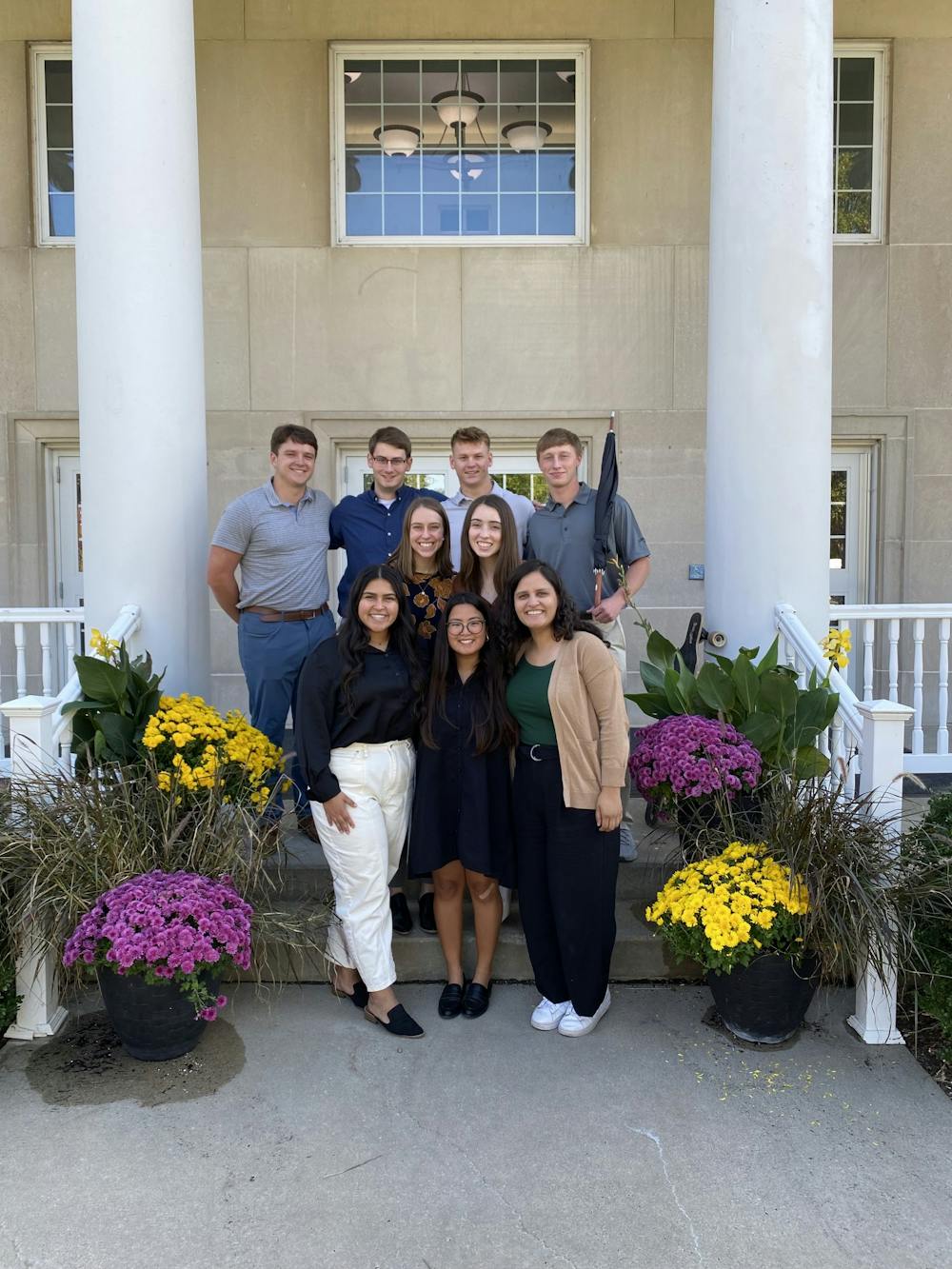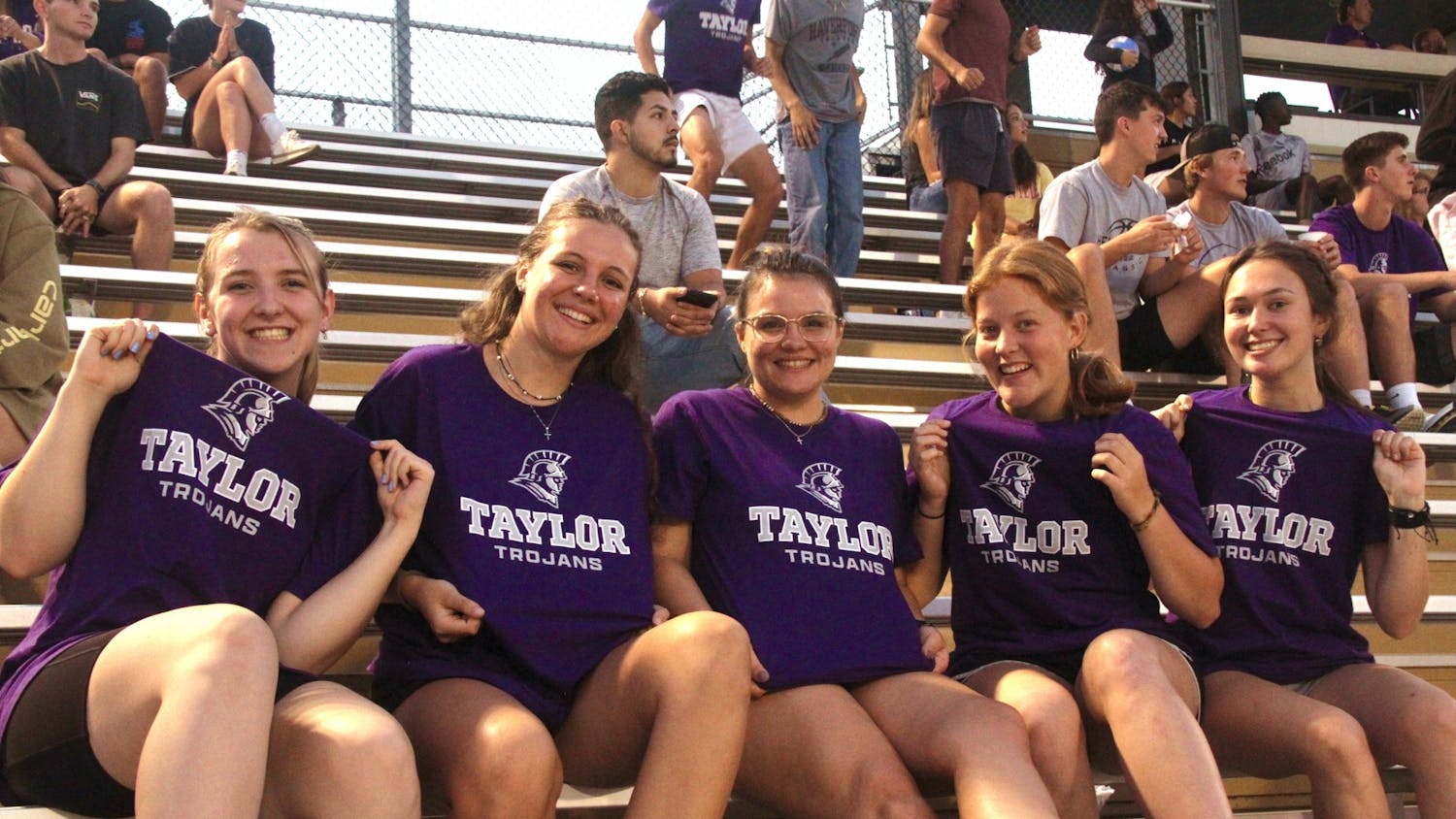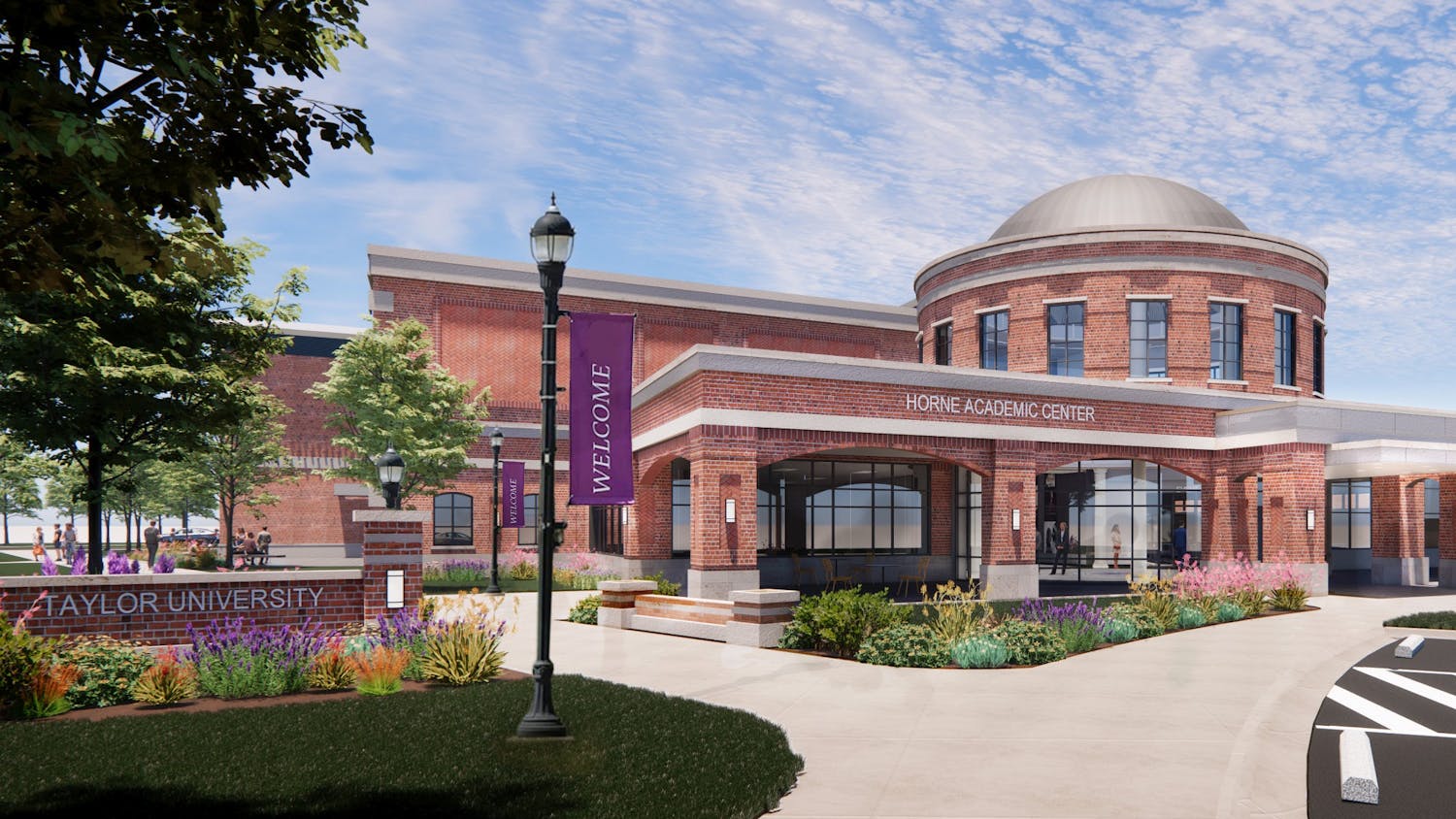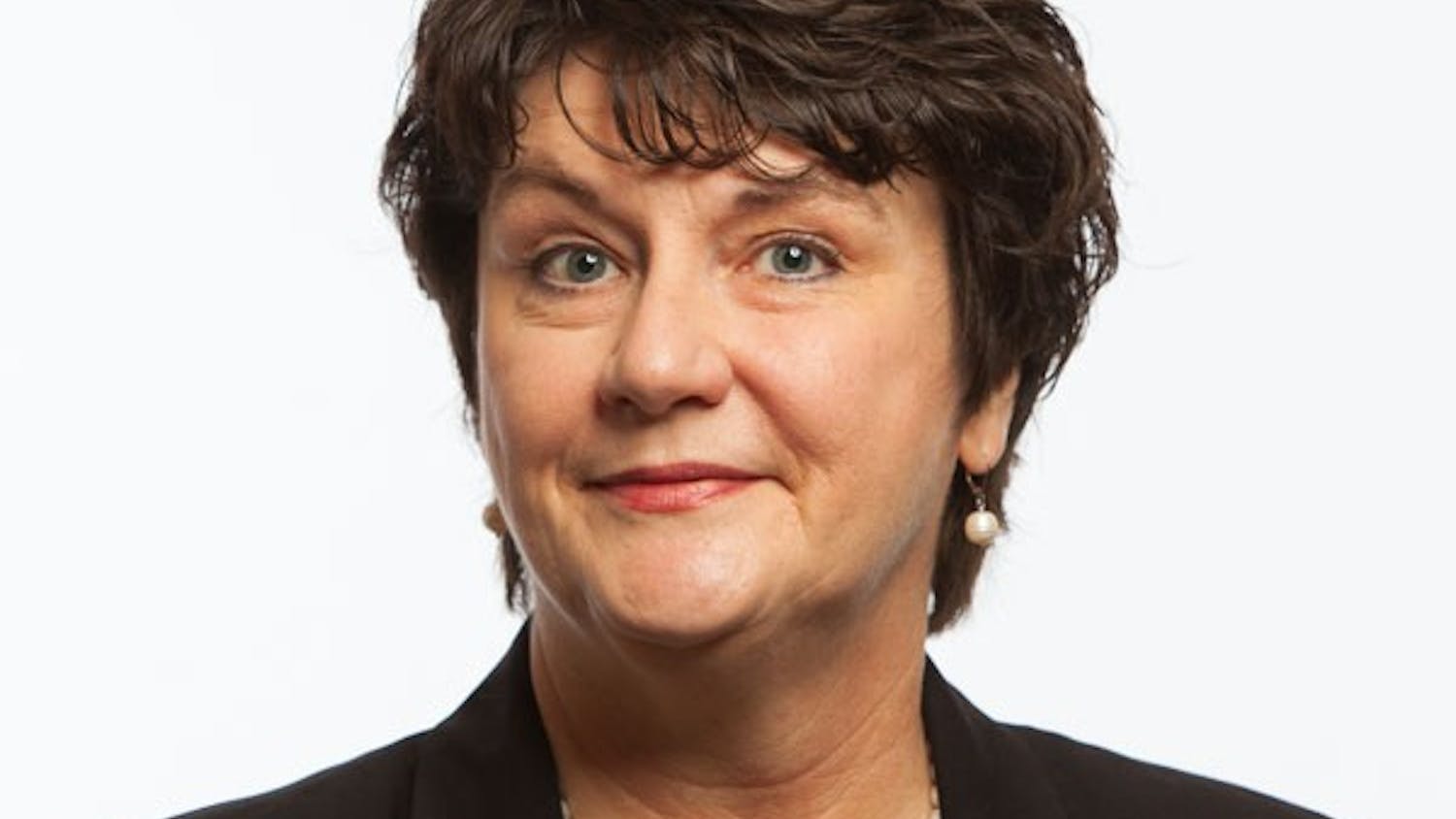Servant leader.
It’s not just a buzz word that tour guides try to fit into their monologues or that prospective students put into their application essays.
It’s a principle that distinguishes Taylor University from the nearly 900 other colleges with religious affiliations across the United States.
It’s integral to the university in both pillar and in practice.
President Lindsay has remained committed to the task of developing servant leaders since before his inauguration in October 2021.
During his role as president of Gordon College in Massachusetts, he pioneered the creation of the Fellows program, a leadership development program modeled after an initiative of the same name at the White House in Washington, D.C.
In this program, students undergo an intensive interview process before they are chosen to serve as presidential fellows, aiding the work of vice presidents and senior leadership team members across campus.
Sophomores and juniors qualify for applications to become fellows, as the team is made exclusively of juniors and seniors.
Four students piloted this program during the ’21-’22 school year, Lindsay’s first year as president.
This year, 9 fellows were selected to assist Taylor’s senior leadership in various capacities.
Every Thursday morning, the fellows meet for breakfast. They see this as a valuable time to collaborate with, encourage and update each other on their various developments.
Other than this time, their work is largely independent of one another as they serve in separate departments.
Isabelle Armour is a senior politics and law major. During her junior year, she served as a personnel assistant (PA) on Third West Olson. She applied to be a fellow this year because she wanted to continue to be involved on campus in some capacity as a senior.
As she learned about the program, she found the role to align more and more with her future goals.
“It does grow you in a lot of ways that being a PA doesn’t, and I think, like, being in any other role on campus doesn’t,” Armour said.
This growth is something that Lindsay intended to be a central outcome of the program.
Lindsay’s hope is for the fellows to use the skills they have developed under the mentorship of Taylor faculty to launch them into professional arenas as standout leaders.
Armour serves alongside senior fellow Liam Hesting under Dr. Michael Falder (’94), vice president for university advancement.
She typically spends 15-20 hours in the office completing project-based assignments and administrative work. A recent project has allowed Armour to make decisions regarding signage in Taylor’s art gallery.
Her job is as diverse as it is detail-oriented.
“My role as a fellow is never the same,” Armour said.
Often, Armour’s work brings her into contact with various donors and CEOs with which the university is associated.
Earlier this year, the fellows took a trip with the president to Atlanta, where they were able to meet face to face with some of the university’s key supporters.
“I think a lot of people know that Taylor has a lot of connections across the world,” Armour said. “But I don’t think you really see that come into play or come into action until you’re in a role like this, where you’re meeting people that Taylor knows.”
In addition to external connections, Armour has enjoyed developing relationships within the advancement department.
Ultimately, serving as a fellow has allowed her to experience firsthand the breadth of Taylor’s reach.
“I think Taylor really is connected to all four corners of the world in some capacity,” Armour said. “And I think that this role — this job — really showed me that.”
Serving on the team along with Armour is Elizabeth Eckert, a senior communication major currently working for Taylor’s vice president for enrollment and marketing, Holly Whitby.
This year, Eckert has collaborated with Whitby on a widescale marketing department brand study.
She has eagerly embraced the opportunity to bring a student perspective to the project.
Like Armour, Eckert’s work is also largely administrative in nature, including but not limited to participating in meetings with the marketing team, formatting job profiles, speaking at 24-at-Taylor events and connecting with prospective families.
Eckert believes many experiences prepared her for the role.
Along with having served as both a PA and Discipleship Assistant during her time at Taylor, she interned at a church near her hometown doing communication work, not dissimilar to the type of work that she is currently involved with in the marketing department.
She acknowledges the value of her past leadership experiences and the classes she has taken to her current position, especially in the development of soft skills like public speaking, event-planning and interpersonal communication.
This year, Eckert is taking a sociology class led by Lindsay called “Leading for the Common Good.”
Eckert is grateful for the opportunity to sit under Lindsay’s teaching.
“He cares about the details, and I think that shows in everything that he does, whether it’s speaking, or in the strategic plan, or in his classroom,” Eckert said. “I’ve been able to see just that care and attention to detail, and how it allows him to be both articulate and passionate about the things that he cares about.”
In addition to all she has learned from her mentors within the program, being a fellow has affirmed Eckert in the value of sharing her insight, especially in spaces where she might not have always been confident to do so.
She hopes to finish her time at Taylor well, and to leverage the connections that she has made for success in her future endeavors.
Serving alongside Armour and Eckert is junior PPE systems major Andrew Bruner.
Bruner’s role positions him directly under the president, aiding him and his team in various research projects, administrative tasks and the facilitation of campus visits for special guests.
In addition to these roles, Bruner helps with communication from the president’s office and leads tours for guests that are invited to visit Taylor.
Bruner was first interested in the program for its hands-on approach, as well as the chance to learn from senior leaders, both on campus and off.
“I’ve always sort of gravitated towards and felt gifted in student leadership roles,” Bruner said. “I think that’s something that is a desire God has given me, to want to serve in that way. I think the idea of servant leadership is especially important.”
Some of these past roles for Bruner include serving on student senate for two years and as a PA on First Breu his sophomore year.
These leadership opportunities taught Bruner how to best invest his time and energy, execute planned events and mediate communication on multiple levels.
He’s especially grateful for the way Lindsay has modeled servant leadership.
“A lot of the time we have a negative view of power, where it’s top-down and oppressive,” Bruner said. “And I think President Lindsay is really leaning a lot into a different definition of power, which is very servant leader like, like Christ, and is something that is very important to who Taylor is, and so I’m very glad that he’s a leader who can do that well.”
The fellows are grateful to serve in a position that opens them up not just to a unique relationship with President Lindsay and Taylor administration across departments, but to the university’s sphere of influence across the globe.
Eckert summarized the significance of her experience in this position.
“You get to see the other side of Taylor,” she said. “And I’ve loved what I’ve seen from an administrative perspective. We have a lot of people here that really care about Taylor, and it shows in every department.”





